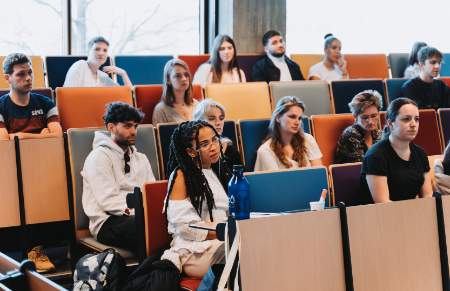Is this the programme you're looking for?
Are you interested in the social, cultural, and ethical consequences of new and established technologies, like AI, smart living and social media? And do you want to research the way values like ‘privacy’ and ‘security’ impact our lives and society? Then the master specialisation Media, Digitalisation & Social Impact is the programme for you!
Key Facts & Figures
- Type
- Master
- Degree
- MA
- Mode of study
- Full-time
- Instruction language
- English
- Duration
- 1 year
- Study points (EC)
- 60
- Location
- Campus Woudestein
- Start date
- September
- Application Deadline (EEA)
- 15 May
The study programme in a nutshell
Media, Digitalisation & Social Impact is one of the five master specialisations within the master Media Studies. By focusing on today and tomorrow’s most urgent challenges, Media, Digitalisation & Social Impact teaches you to become an expert in the field of media digitalisation. You will learn to trace and analyse the fast paced technological and organisational developments in digitalisation whilst appraising its social impact and ethical consequences.
Watch the study programme video

What you will learn
- The social and ethical side of emerging media technologies and how they impact our daily lives.
- Explore what it means to be a digital citizen and how to cope with fast paced technological developments.
- Think critically about digitalisation opportunities, what they entail for society and and give well-founded advice on it.
- Dive into the myriad of communication challenges faced by companies, managers and workers in the media sector and other industries.
- Develop scientifically informed responses to challenges by focusing on social, intercultural, political, technical, and international dimensions of digitalisation.
Want to know more? Meet us here

Career opportunities after graduation
Media, Digitalisation & Social Impact graduates are in-demand and widely employable professionals with excellent career opportunities. At the forefront of social and technological change, they produce digital strategy as advisors and advocates. In addition, graduates will gain expertise well suited to research positions at tech companies, NGO's, universities, and consultancies as well as public and private think tanks.


